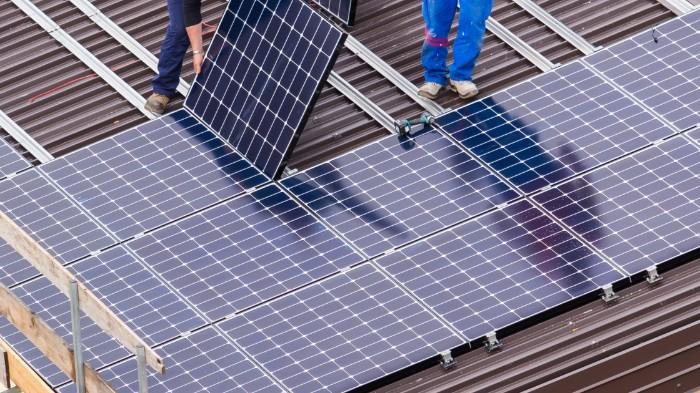The Solar Farm Construction Industry: What It Is & How To Expand Into The Solar Industry
With the rapid growth of renewable energy sources, the solar farm construction industry is booming. Solar farms are a great source of clean energy and are becoming increasingly popular as they provide benefits such as cost savings and environmental sustainability. If you’re looking to get into this industry, read on to learn more about what it is and how to expand into it.
What Is A Solar Farm?
A solar farm is a large-scale power plant that uses photovoltaic (PV) cells to convert sunlight into electricity, commonly known as photovoltaic power stations. It consists of multiple solar panels which can be placed as rooftop panels or a personal solar farm, or even a community solar farm. The power output generated from these farms is then used in homes and businesses, sold back to utilities, or sent directly to customers.
How Can I Get Into the Solar Farm Construction Industry?
If you’re looking for ways to get into the solar farm construction industry, here are some key steps you should take:
1. Research The Local Market Conditions And Regulations That Apply To Your Area.
The construction of a solar farm is heavily influenced by the conditions of the markets and regulations in place within each region. For example, solar farm projects in California are affected by the shortage of substrate due to increased competition between manufacturers. Additionally, some states have implemented renewable energy tax credits to incentivize developers to build more solar farms. Ensuring that a proposed site meets all regulations for its respective area is vital for a successful and safe completion.
2. Find Reliable Suppliers Who Can Provide Quality Materials.
If you have any contacts working in the same field, they can offer insight and advice on who they’ve had good experiences with. You could also attend solar power trade shows or expos, as many reputable suppliers exhibit there and you can get a feel for their products and services in person. Another option is networking online through solar power forums or websites. In doing your research, it’s wise to be sure each supplier has a good history of delivering high quality products within deadlines that are suitable for your production schedule.
3. Reach Out To Potential Customers Who May Be Interested In Investing In A Solar Farm Installation.
When it comes to reaching out to potential customers interested in investing in a solar farm or solar panel installation, the best strategy is to be proactive. Reach out through digital channels, like email campaigns or social media, and focus on providing information that is both accurate and helpful. By being upfront and transparent about the details of the project and the benefits it provides customers, like green energy, and saving money on their electric bill, you can encourage positive word-of-mouth amongst individuals interested in making sound investments. Alternatively, reach out with targeted direct mail campaigns to further capture the attention of potential clients.
4. Develop A Solid Business Plan That Outlines All Costs Associated With Setting Up And Running A Solar Farm Project.
Gathering detailed research is essential to paint an accurate picture of the resources, finances and labor that will be required throughout the entire project. As you compile the resources, consider anything from construction materials and operational expenses such as maintenance and labor to any restrictions that may directly or indirectly influence your costs. By allocating each resource, you can easily assess whether you have enough capital to launch your solar farm project while still leaving room in the budget for unexpected expenses.
5. Acquire Necessary Certifications And Permits Required By Local Authorities.
Contact your local government offices to find out what unique regulations they have put in place regarding solar farms. They will provide the details of any available subsidies or special training requirements that may apply. Many local governments also require environmental impact assessments before authorizing solar developments, so have your documents prepared accordingly. Furthermore, make sure your proposed project aligns with the comprehensive plans of your municipality and understand the zoning code requirements in order to determine if a special permit is needed.
The solar industry is growing rapidly due to its environmental benefits from renewable energy and cost savings for consumers. If you’re considering expanding into this sector of construction supply distribution as a contractor, it’s important that you do your research first — from researching local regulations to finding reliable suppliers — so that your business venture can be successful. Taking these steps will ensure that you have all the tools needed for expansion into this thriving industry!







